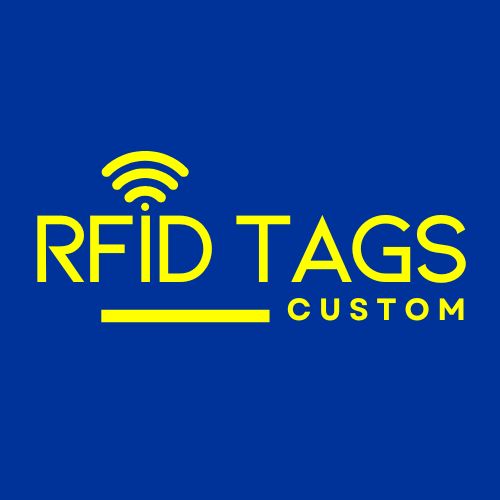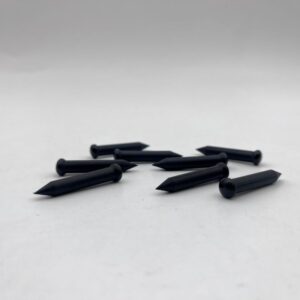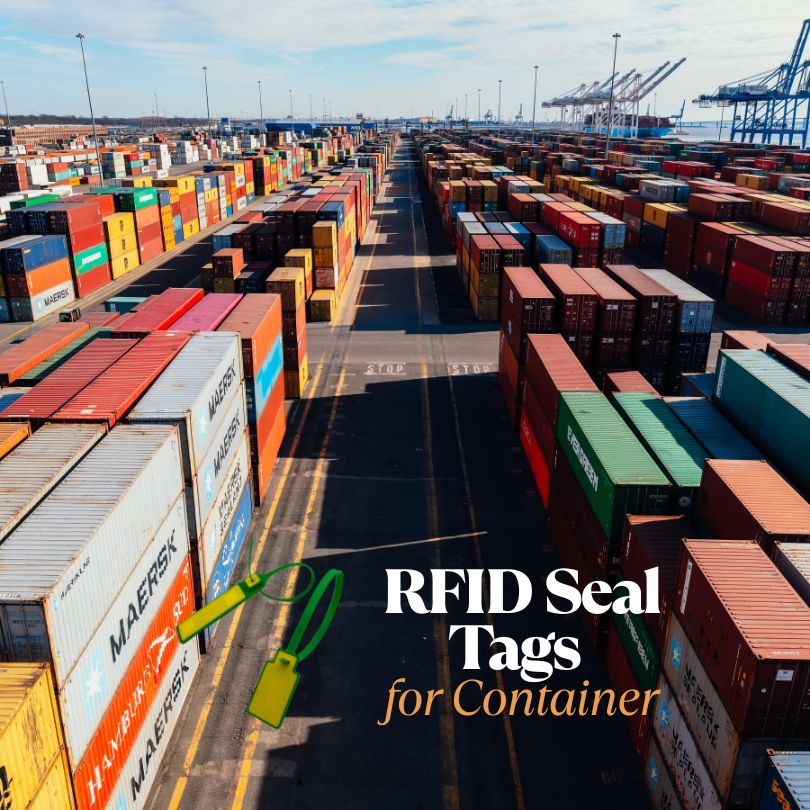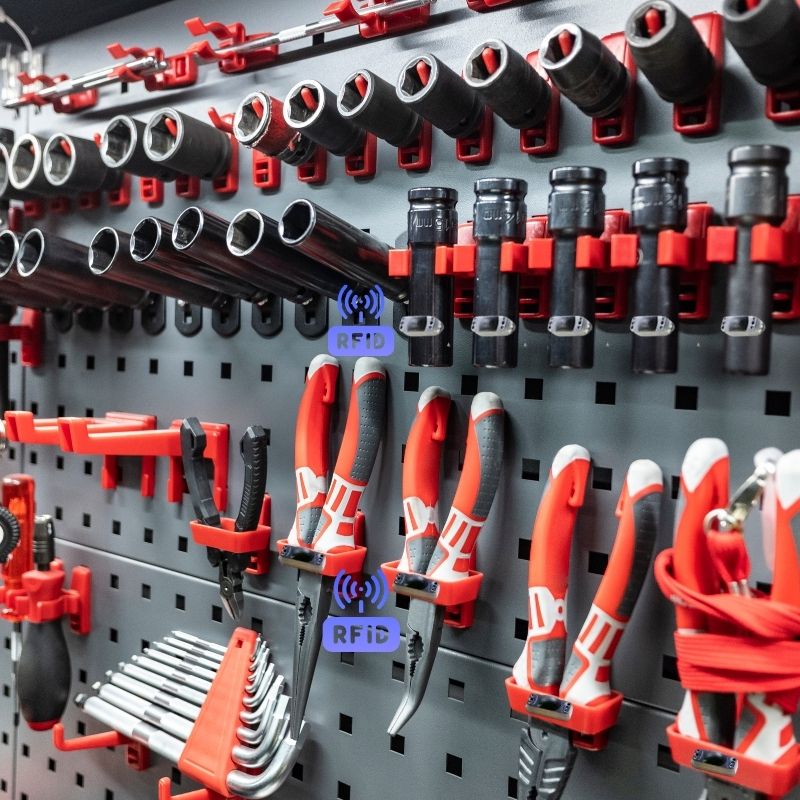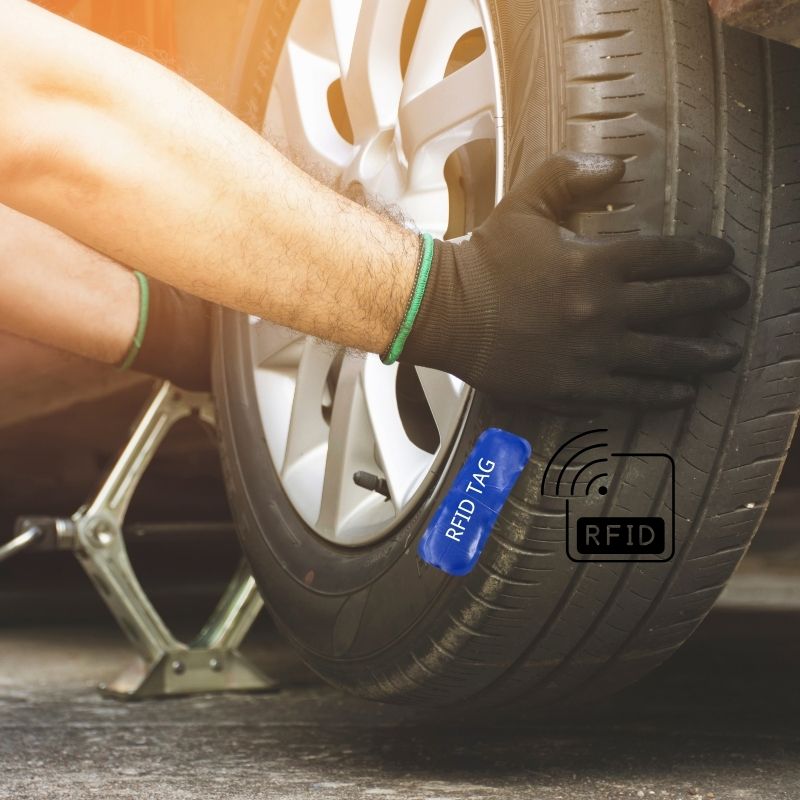RFID Nail Tag for Tree Tracking
RFID nail tags for tree tracking, forest resource monitoring, seedling management, and illegal logging prevention.
How RFID Nail Tags Are Revolutionizing Tree Tracking and Forest Management
In an era where environmental sustainability and data-driven operations are at the forefront, forestry departments, conservation agencies, and nurseries are turning to RFID nail tag technology to transform how they manage trees. A nail tag embedded with a radio frequency identification (RFID) chip offers powerful capabilities for tree tracking, from monitoring seedling growth to preventing illegal logging in rainforests.
This article explores the practical use of RFID nail tags, supported by real-world cases, to show how they improve traceability, accuracy, and management efficiency in forestry.
What Is a Nail Tag?
A nail tag is a small, durable, RFID-enabled tag designed to be embedded directly into trees or wooden surfaces. Unlike traditional labels or barcodes, a nail tag can store and transmit digital data wirelessly through RFID readers, even in harsh outdoor environments.
These tags typically use UHF (Ultra High Frequency) technology, enabling long-distance scanning, rapid data capture, and integration with forest databases.
Why Use RFID Nail Tags in Tree Tracking?
Traditional methods of tree tracking—like painted markings or manual inventory logs—are labor-intensive, error-prone, and offer limited scalability. With RFID nail tags, forestry managers gain:
- Accurate data collection
- Real-time tracking
- Automated Inventory
- Tamper-resistant records
- Improved enforcement against illegal logging
Let’s break down how RFID technology, particularly RFID nail tags, is transforming operations across various forestry applications.
Case Study 1: Forest Protection in the Philippines
Challenge
- Inability to monitor tree conditions remotely
- Limited traceability of tree origins during transport
- Rampant illegal harvesting and smuggling of precious woods
- Poor enforcement due to a lack of data
Solution: RFID Nail Tags
Through a comprehensive forest digitization initiative, the Philippine Forestry Department deployed RFID nail tags embedded into high-value trees. Each tree was issued a digital “electronic ID card” linked to:
- Tree species and age
- GPS location
- Condition and growth data
- Custodial responsibility
These RFID tree tags were scanned using UHF handheld readers during regular inspections, allowing for accurate data collection even in the deepest parts of the jungle.
Impact
- Illegal Logging Deterrence: Each logged tree could be traced to its origin, helping authorities prosecute illegal activities.
- Data-Driven Decision Making: Forestry departments used collected data to assess disease patterns, growth rates, and biodiversity impact.
- Integrated Law Enforcement: RFID was connected to transport, felling, and quarantine certificates to prevent fraud and unauthorized movement of wood.
Key Result: Forestry teams reported a 40% drop in unauthorized tree felling in pilot areas, demonstrating the potential of RFID nail tag systems for long-term forest preservation.
Case Study 2: RFID in Seedling Nurseries
Background
A large-scale nursery managing tens of thousands of seedlings across multiple zones struggled with the following:
- Manual data entry errors
- Cumbersome seedling searches
- Lack of real-time growth records
- Inability to validate shipment accuracy
Solution: RFID-Based Seedling Management System
An intelligent management system was introduced using RFID nail tags and handheld RFID readers. Each seedling was tagged at its early growth stage with an RFID nail, linked to a central database storing:
- Purchase date
- Height, diameter, and specifications
- Health status and growth updates
- Inventory and transfer logs
These RFID nails allowed staff to update their status in real-time and track seedlings across lifecycle stages from planting to sale.
Features
- Automated Data Collection
Manual updates were replaced with real-time scans, resulting in reduced time and fewer errors. - Efficient Inventory
Bulk scanning with handheld readers enabled quick counts, saving over 70% of the time required for traditional inventory. - Improved Accuracy
RFID improved the traceability of seedling origin and condition at all stages. - Remote Management
Nursery headquarters could access data remotely for better oversight.
Key Result: The nursery reduced labor requirements by 50% while doubling its operational efficiency, showcasing a scalable solution for smart forestry.
Technical Benefits of RFID Nail Tags in Forestry
| Feature | Benefit |
|---|---|
| Durable and Weatherproof | Withstands harsh outdoor environments without degrading |
| High Memory Capacity | Stores detailed data like growth logs, origin, and health status |
| GPS Integration | Enables geolocation of trees for tracking and mapping |
| Long Range Scanning | RFID readers can detect RFID tree tags from several meters away |
| Anti-Theft and Legal Compliance | Provides digital proof of ownership and cutting rights |
RFID in Tree Transportation and Certification
Another crucial application is in the transportation of timber. RFID technology supports end-to-end tracking of wood products from forests to marketplaces.
By linking each nail tag to certificates (such as transport permits and felling permissions), it becomes more difficult to insert illegally logged wood into the legal supply chain. The system automates verification of:
- Tree origin
- Transport routes
- Quarantine and pest control checks
This level of transparency is crucial for both local law enforcement and international buyers concerned with sustainability and compliance.
How RFID Tree Tags Enhance Lifecycle Management
The benefits of RFID tree tags span every stage of the tree’s life:
Seedling Phase
- Implant RFID nails upon planting.
- Record initial data: date, species, supplier.
- Establish a digital identity in the system.
Growth Phase
- Periodic RFID scans update data (height, diameter, health status).
- Alerts can be set for disease monitoring or slow growth.
- Reduce manual inspection frequency.
Harvest Phase
- RFID verifies filling permissions.
- Ensures correct logging of tree dimensions.
- Enables comparison of pre-harvest vs post-harvest conditions.
Post-Harvest Phase
- RFID is used in transport logs and legality certificates.
- Enables tracking of timber across the logistics chain.
- Assists in warranty claims and audits.
Overcoming Common Bottlenecks with RFID Solutions
| Problem | Traditional Approach | RFID Nail Tag Solution |
|---|---|---|
| Seedling identification | Visual tagging or memory-based | Unique digital ID |
| Status tracking | Paper logs are prone to error | Real-time digital updates |
| Inventory | Manual counting | Automated scanning |
| Shipment validation | Prone to mismatch or fraud | Scan-confirmed shipment logs |
| Tree accountability | Difficult to prove negligence | Linked custodianship |
These benefits help establish more transparent, scalable, and trustworthy forestry operations.
Results from RFID Tree Tag Deployment
Across various projects, clients using RFID nail tags report:
- 70%+ inventory time reduction
- 50%+ decrease in labor costs
- Accurate, real-time data logs
- Greater legal enforcement
- Improved seedling survival rates due to better monitoring
This technology not only improves forestry logistics but also supports climate action goals by enabling better resource conservation.
Summary: Why RFID Nail Tags Are the Future of Tree Management
The use of RFID nail tags in forestry is proving to be a transformative force for environmental management and commercial forestry alike. From RFID tree tags in the Philippine rainforests to RFID nails in high-volume nurseries, the technology enables:
- End-to-end lifecycle tracking
- Real-time data accuracy
- Lower operational costs
- Better legal compliance
- Efficient forest protection
As governments and businesses seek more innovative ways to manage natural resources, nail tags and other RFID systems are setting the new standard for tree and timber management.
Ready to Transform Tree Tracking with RFID Nail Tags?
Learn how RFID nail tags can improve forestry management, increase efficiency, and ensure regulatory complicance.
Applications of RFID Nail Tag
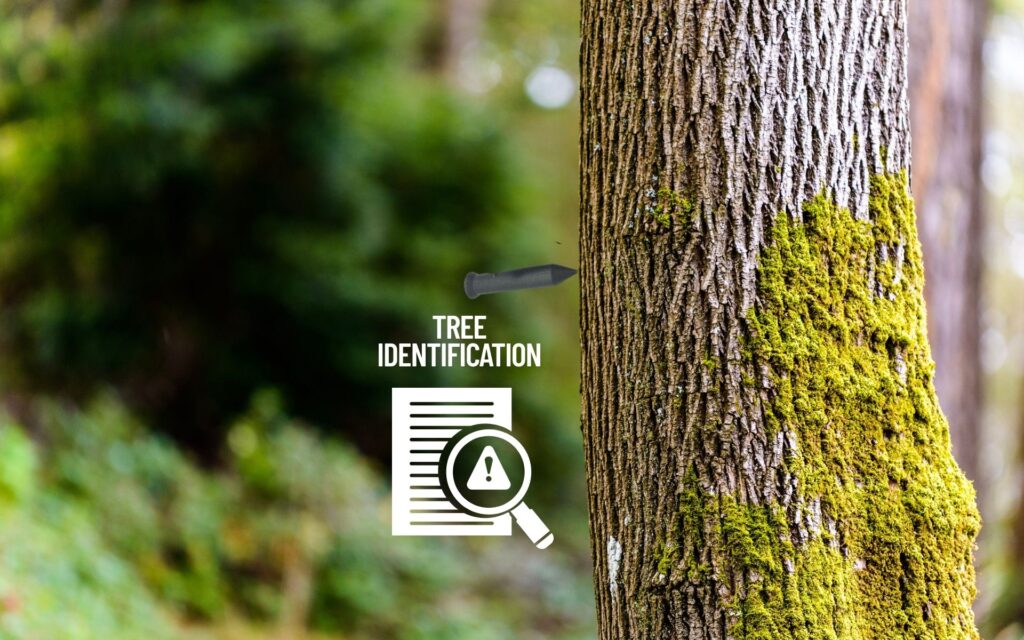
Tree Identification and Lifecycle Tracking
RFID nail tags are embedded into individual trees to serve as permanent, digital ID cards. Each tag stores crucial information like species, planting date, location, and health status. This enables forestry teams to track the entire lifecycle of a tree—from planting to harvest—with minimal manual effort.
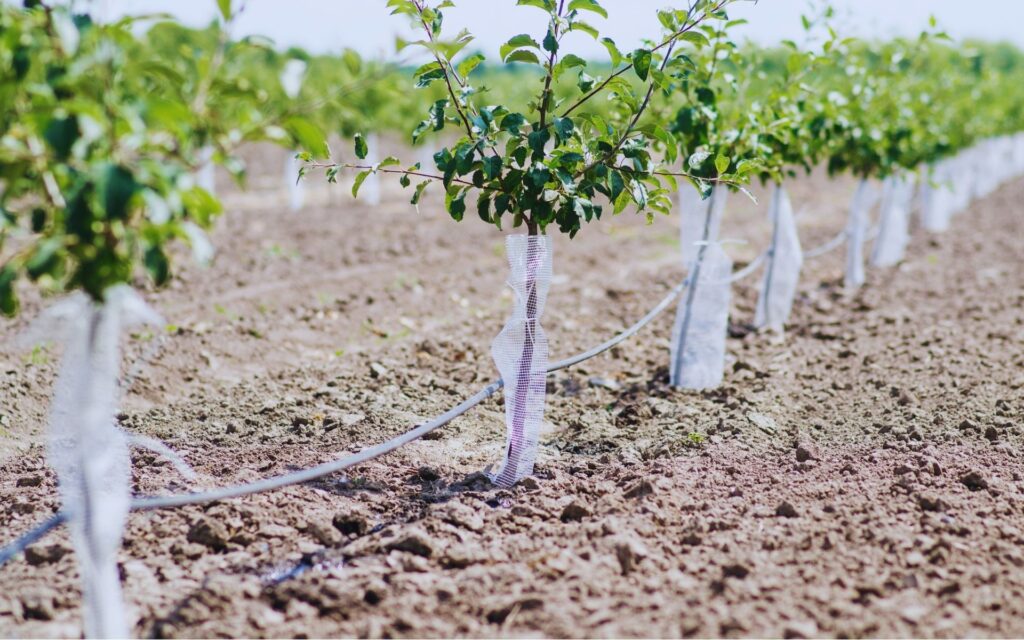
Smart Nursery Management
In seedling production bases, RFID nail tags are used to register and monitor seedlings. Staff can use handheld RFID readers to quickly scan thousands of seedlings, updating data such as diameter, health, and readiness for sale. This simplifies inventory management, improves accuracy, and reduces labor costs.
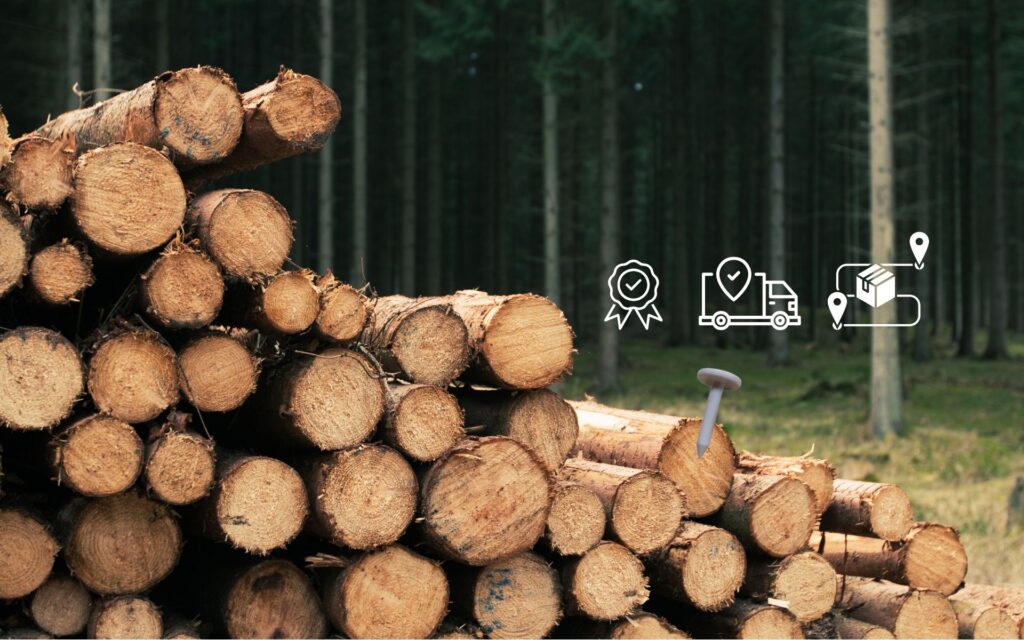
Timber Supply Chain Traceability
From harvest to transportation, RFID tree tags enable the tracking of timber products through every stage. When paired with digital transport permits and felling certificates, each piece of wood can be verified as legal and sustainably sourced.
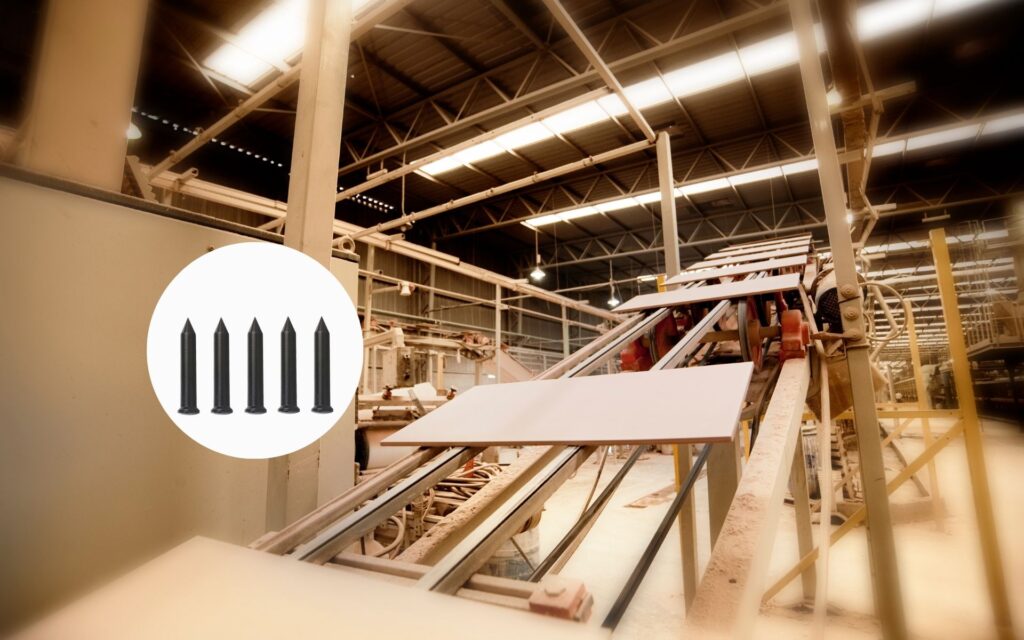
Smart Door Product Sales and Inventory Management
Beyond forestry, RFID nail tags are increasingly used in the production and sale of wood-based door products, such as solid wood doors, composite doors, and custom wooden panels. RFID nail tags are embedded in wooden doors during production to store data such as model, size, color, and batch information. Using RFID readers, staff can quickly scan each door for accurate inventory, order tracking, and after-sales traceability. This reduces errors, improves efficiency, and streamlines warehouse operations.
